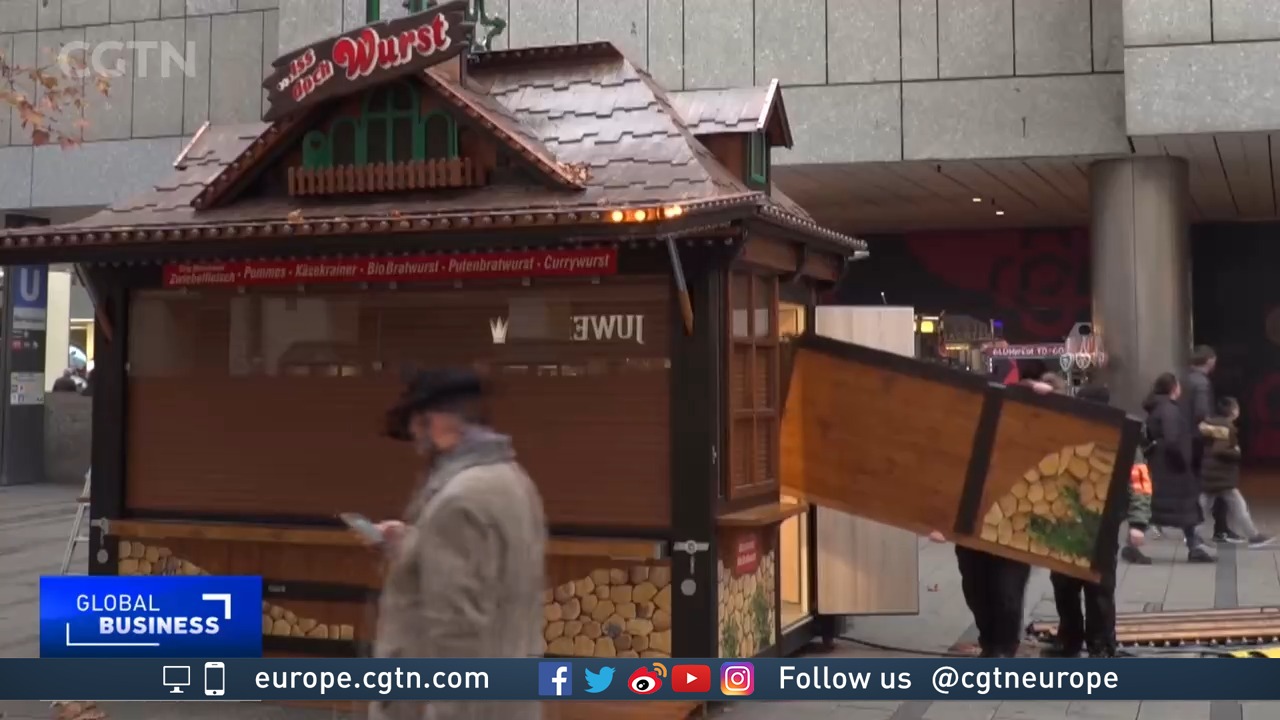02:59

"Good morning," I say as I approach a stall owner carefully peeling off gold paper lining from the walls of his wooden hut.
"What's good about it?!" he snarls back. His response embodies the mood in Munich's Christkindlmarkt or "Christ Child Market" early Wednesday morning.
On Tuesday afternoon, the city's Mayor Dieter Reiter canceled the public markets in the city for the second year in a row, saying it would be irresponsible for the event to go ahead, considering the record COVID- 19 infection numbers.
Delicate balance
Many of the stall owners understand the delicate balance required to operate such a public event while the city's hospitals are filling up with COVID-19 patients, but many are angry over the timing of the announcement.
READ MORE:
Anti-Asian hate speech 'surged online'
Zero Waste Challenge: Household rubbish
China urges EU to ratify trade deal
"The cancelation should have come a little earlier," Anika Gisinger tells CGTN. Gisinger and her son own one of the Christmas stalls in Munich's popular Marienplatz. While they had not completed setting up the stall, their neighbor, Helmut Berger, had been eagerly anticipating the market's opening on November 22.
"Last Monday, I was told that I was allowed to set up," Berger said, confirming the city's original decision to go ahead with the market.
"And in the end, the result is that we are standing here having to dismantle now. We have to bear all the costs. For example, the electrician, the commercial costs and so on, and immediately. Nobody pays our costs."
When asked if they will receive compensation from the city, both Gisinger and Berger said they are unsure. "We do not know that yet. They said yes, but we'll have to wait and see," said Gisinger.

The Munich Christmas markets attract 3 million visitors a year. /Christof Stache/AFP
The Munich Christmas markets attract 3 million visitors a year. /Christof Stache/AFP
Private markets remain open
Another bone of contention is that private, smaller Christmas markets that can guarantee all patrons are either vaccinated or recently recovered from COVID-19 can still go ahead.
The Christmas markets in the state capital Munich are some of the most popular in the country and have historically drawn in 3 million visitors a year, who come to savor mulled wine and nibble on roasted chestnuts while shopping for seasonal trinkets in the wooden huts.
According to Clemens Baumgartner, the economic adviser to Munich, all 30 of the city's public and private Christmas markets bring in around $327.8m annually.
"Without the Christmas markets, we will see a significant drop in visitors," Baumgartner tells CGTN. "And, of course, less buying in the other shops because all benefit from the additional purchasing power that is generated [by the Christmas markets]."
Record infections
But Germany has been experiencing record numbers of COVID-19 infections, with Bavaria one of the worst-hit areas. The weekly incidence rate in the state is more than 554 per 100,000 – well above the nationwide figure of 312, prompting the conservative state government to tighten the reins again on public activities.
Restaurants and cultural events have long been subject to Germany's "3G" rule, where one must be vaccinated, have recovered from COVID-19, or have a negative test to take part. And soon those riding public transport will also need proof of one of the three.
With infections, predominantly among the unvaccinated, continuing to fill up hospital beds and Munich taking what many see as an unfortunate but necessary step to close Christmas markets again – it is expected other German cities will follow suit.
Cover image: CGTN Europe

